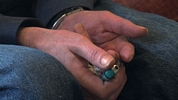Many women suffer from heart disease each year. In fact, heart disease is the #1 killer of American women, where more than one in five women have some form of cardiovascular disease. The more alarming fact is that 43% of deaths in American women, or nearly 500,000, are caused by cardiovascular disease each year. Coronary heart disease is the most common form of heart disease. It is a disorder of the blood vessels of the heart that can lead to a heart attack.
A heart attack happens when an artery becomes blocked, preventing oxygen and nutrients from getting to the heart. When the heart muscles no longer receive oxygen or nutrients to function properly, it begins to die. When a large amount of the heart muscle is injured, it will weaken the heart's function, ultimately leading to heart failure or death.
The National Coalition for Women with Heart Disease has revealed these critical facts on the prevalence of heart disease among women:
8,000,000 American women are currently living with heart disease - 10% of women ages 45 - 64 and 25% age 65 and over.
435,000 American women have heart attacks each year; 83,000 are under age 65 and 9,000 are under age 45. Their average age is 70.4.
267,000 women die each year from heart attacks, which kill six times as many women as breast cancer.
31, 837 women die each year of congestive heart failure, or 62.6% of all heart failure deaths.
Although such statistics provide strong evidence that women are at high risk of getting heart disease; however, less than one in ten women think that heart disease is their greatest heart threat (The American Society of Echocardiography). If such ignorance continues, the number of women who suffer and die from this disease will soar dramatically each year.
Some women even believe that this disease can be cured by surgery. This is not true at all. Heart disease is a lifelong condition. When a woman is diagnosed of having heart disease, she will have to cope with this disease and make efforts to reduce the chances of getting a heart attack through diet and lifestyle.
According to The American Society of Echocardiography, the warning signs of heart attack that every woman should know are:
Uncomfortable pressure, fullness, squeezing or burning pain in the center of
the chest that lasts more than a few minutes, or goes away and comes back.
Pain that spreads to the shoulders, neck or arms.
Chest discomfort with lightheadedness, fainting, sweating, nausea or
shortness of breath.
Unusual chest pain, stomach or abdominal pain.
Nausea or dizziness (without chest pain).
Shortness of breath and difficulty breathing (without chest pain).
Unexplained anxiety, weakness or extreme fatigue.
Palpitations, cold sweat or paleness.
It was reported that not all these symptoms occur in every attack. Sometimes they disappear and return again. If some of these symptoms appear, get help immediately. Do not wait another moment thinking whether medical treatment is needed. As compared to men, women typically wait longer to seek medical attention. A few possibilities may explain why women delay in getting the necessary heart screening and treatment.
The fear of becoming a heart disease patient is one major factor why women delay getting heart diagnosis. They are afraid to go through heart screening and treatment which are perceived as painful and uncomfortable. Women are also afraid of the likelihood of having to undergo heart surgery where the survival chance is unknown.
The perception of others seeing them as "overreacting" is another major cause of women delaying their decision to seek treatment. They are also afraid to face with embarrassment should the diagnosis turn out to be a "false alarm". Thus, they will rather not involve their spouse, family member or friend in the process of getting a heart diagnosis.
If you are experiencing the symptoms of heart attack, delay no more. You must go for a medical check up immediately. Think for a moment about the consequences. If you delay, you may develop a heart attack. You may never recover from the heart attack and lose your life. You may never see your loved ones again.
The decision to go for a heart diagnosis is your responsibility. No one else knows the condition of your heart better than yourself. Even if the results of the diagnosis show that you are not having heart disease, it's worth the effort to find out from your doctor. Don't have the "wait and see" mentality. If you are heart disease patient and are not under medical supervision, the longer you wait, the higher chance you will get a heart attack. Make an appointment to see your doctor for a heart diagnosis today. Early medical intervention will save your life.



